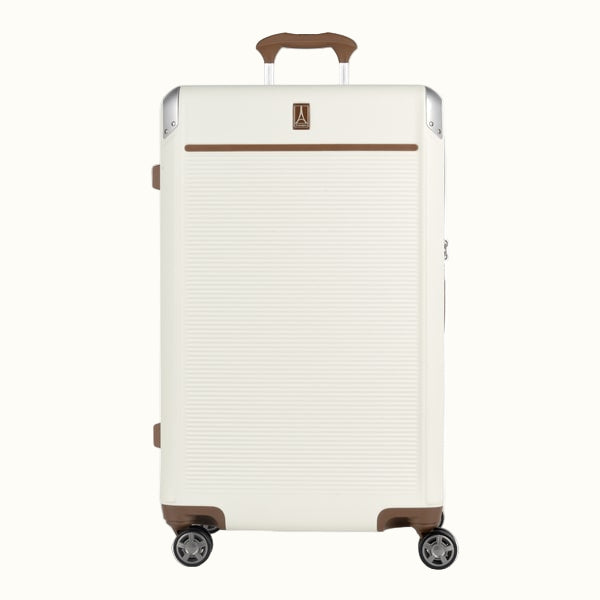As things are getting back to normal, travel has been increasing, which means travel scams are on the rise again as well. And not just the old scams like fake wifi hubs or gifts of rosemary or bracelets — there are plenty of new ones coming up that travelers should be aware of.
As you’re making plans, hackers and cybercriminals are trying everything they can to get personal information from you via fake airfare packages, hotel deals, and more. They know people like travel deals and might sometimes consider a new travel provider, even if they’ve never heard of that provider before. So these travel scams are happening before you even leave for the airport!
The problem is, if the travelers don’t do the right research or take every special offer with a grain of salt, they’re more likely to fall for some of these tricks. Here are a few travel scams that we’re hearing about in 2021.
Scammers posing as well-known brands.
On any given day, you may get a call from a local number of someone you don’t know. The voice on the other end is a pre-recorded message, and you get pretty good at spotting those calls and recognizing the telltale pause before the person starts speaking. When it’s not an extended car warranty, it could be someone saying they’re from an airline, hotel, or even cruise line and they either have an offer, or there’s a problem with your account.
Or you get an email from a fake travel provider. It’s one thing if you’ve booked tickets or made reservations, because they may actually email you. But beware of those emails out of the blue, because there’s a good chance those are fake. You can tell if an email is fake if it’s sent from a domain other than the actual travel provider’s domain. Also, hover over different hyperlinks and see what address pops up — again, they should point back to the provider’s domain. If you’re not sure whether the email is legitimate, don’t click any of the links; go straight to the website from your browser and log into your account the normal way.
Vacation rental scams.
Looking at vacation rentals online can be relaxing and it’s fun to daydream about the properties you’re seeing. The photos are attractive and you can lose yourself in the descriptions of the amenities and the incredible environment you could be in.
The problem is, just like the scammers are posing as well-known brands, other scammers are putting up websites for fake rental properties and accepting credit cards to hold reservations. Except the rental doesn’t exist OR the property doesn’t look nearly as good as the photos would have you believe. Use Google Earth and Google Street View to check out the property, and be sure to read reviews on Yelp, Google Business, and Trip Advisor. Finally, do a Google search for the property name “in quotes” and see what comes up.
Car rental scams.
The car rental shortage has presented an opportunity for plenty of travel scams. I don’t know how many people I’ve heard from who said they showed up at a car rental agency only to find that they’re out of cars.
But that’s not the scam! That’s the problem that leads to the scam.
No, the travel scams come in the form of new, unknown car rental agencies that seem to have plenty of rental cars available, according to their websites. They pay a lot of money to post social media ads and build extensive websites all to find people who are desperate for rental cars.
The other part of the scam is that they’ll try to get you to use a gift card and to pay upfront for the car. Don’t fall for this. They use this method so you can’t issue a chargeback on your credit card and seize your money back. No real travel provider will ask for payment in cryptocurrency or gift cards.
Fake airline sites.
Some scammers are even creating fake airline websites just to get people to send money to them. They can look like credible airline sites, or even third-party travel sites similar to Expedia and Kayak. But they’ll use domain names that make you think they’re the real deal, like KayakFlights.com (which is not a real website). A less-savvy traveler might think, “Oh, Kayak has a site just for flights now” and use the website.
Just like the car rental travel scams, these sites will ask you to pay via non-traceable payments like gift cards or cryptocurrency.
TSA Pre-Check/Global Entry.
Be careful if you’re researching TSA rules or if you’re looking to renew your Pre-Check status. For one thing, the official website is TSA.GOV, not .COM or .ORG. So just in case the travel scammers manage to get a fake TSA site high in the search rankings, you’re better off just going straight to the official website via your browser’s address bar and renewing your membership there.
Travel scams are getting more sophisticated. Now, instead of just watching out for pickpockets, money exchange fraudsters, or fake taxi cabs, the cybercriminals are getting in on the act.
What are some travel scams you know about? Have you ever encountered any in the last few years? What are some things we should watch out for? Tell us about it (we promise not to tell!) on our Facebook page, or on our Twitter stream. You can also find us on our Instagram page at @TravelproIntl.





